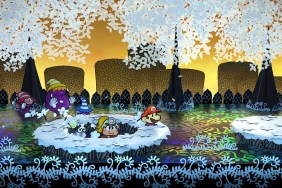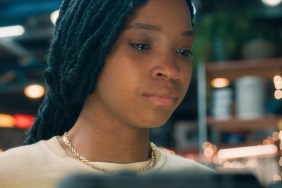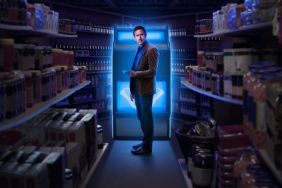Gorak, Cochrane, McCormack…

Downtown Los Angeles’ streets are overrun with confusion. LAX a gridlocked disaster area; planes grounded, travelers awash in fear. Beverly Hills is now just a black smudge on a map. Or, so you hear over the radio until you step outside, look at the skyline and see plumes of black smoke rising in the distance. And a mysterious ash begins to fall…
Chris Gorak’s Right at Your Door is the antithesis of any disaster film Irwin Allen ever brought to screen. In fact, this minimalist thriller with a touch of Orson Welles’ “War of the Worlds” stint or, better still, George A. Romero’s Night of the Living Dead in that it tells the uncomforting story of a couple, Brad and Lexi, who are caught in a heart-wrenching predicament when several dirty bombs are detonated throughout Los Angeles. Brad is sealed within his hillside home, listening to reports broadcast over his radio, windows and doors covered in plastic and duct tape. She’s caught on the outside covered in ash, infected by an unknown toxin released from one explosion. Allowing her in only runs the risk of infecting them both.
Right at Your Door is a conversation starter once you’re given it ten, fifteen or thirty minutes to let it sink in (I needed more like forty-five), when you realize the horrors you’ve seen have not happened…yet.
Gorak’s directorial debut garnered a Grand Jury nomination at Sundance in 2006 and is now hitting theaters in limited run courtesy of Roadside Attractions.
Shock met Gorak and stars Cochrane and Mary McCormack on the final day of the 2007 San Diego Comic-Con.
DIRECTOR CHRIS GORAK
ShockTillYouDrop.com: The conventions of this film are similar to what we see in the zombie genre, but you’ve rooted this in reality. You’ve given it a face of real fears. What set this project off for you?
Chris Gorak: You’re the second person that brought up the zombie thing to me and that’s interesting but it wasn’t an influence on my filmmaking as much as “Jaws” was. So it is in a monster movie, it’s this huge event in this dirty bomb attack and I picture the ash that falls from the sky as the shark fin circling the boat. It questions, who’s your enemy. Know your enemy. We had to take it in a real direction to make it scary.
Shock: How did you help Mary and Rory maintain a constant state of anxiety?
Gorak: We shot it fast, the whole movie was shot in nineteen days so the whole process had an energy which kept everyone on their toes, anxious and angst-ridden. We wanted to capture that honesty. Mary and Rory captured that perfectly.
Shock: Where did you shoot the film?
Gorak: The location was in Echo Park in East L.A. I wanted to find a great little house that was believable for these characters with a great view of Los Angeles so it was the right neighborhood within the range of the danger. But not far enough so they can escape. It’s a cool party of the city I don’t think is exploited enough in film. There are some great icons in Los Angeles but this isn’t an iconographic neighborhood.
Shock: What was the ash made of?
Gorak: The ash was old school, like paper dust mixed with visual FX. We had guys on ladders with fans blowing the stuff around as well as visual FX for the long distance shots. We took the smoke from stock footage of Kuwait oil fires and manipulated it and laid it into our shots of Los Angeles.

Shock: One of the many strengths of this film is the lack of television use – all the info Rory gets is through the radio…
Gorak: Yes, one was because we didn’t want to show news footage. We watch 9/11 unfold on the television so I didn’t want our character to just be sitting there watching the news. Then what I realized is that using just the audio adds to the paranoia and the intensity of it all, the claustrophobia. It was our approach to tackle a disaster movie on an independent budget.
Shock: The only time you go beyond the film’s central location – the house – is when we find Mary in her car caught in the attack, a scene that forced you to make creative choices on the cheap. It’s a startling sequence, albeit brief.
Gorak: I had to figure out a way to show the horrific side of the event without it being too overt, it had to be powerful and graphic and in your face.
Shock: Minimalist ingenuity.
Gorak: It still gives you the chills, I think.
Shock: Totally agree. Now, as I understand it, this whole project began as a short film?
Gorak: That was the idea. Then I realized it could be a complete film so I went for it. My background as an art director and production designer was helpful. I’ve worked on small and big films in those positions and I think that balance in production allowed me to be comfortable with the filmmaking process and I could focus on the story, the characters the dialogue.
Shock: How did you get Rory and Mary and see them as a perfect match to pull this off?
Gorak: The script circulated around town. Mary and Rory came in an auditioned and during the casting process. We found them to be a great match. I wanted our people to feel real, I didn’t want any glossy movie stars. I wanted talented actors who can embody any character. There are several actors who can do that but I felt Mary and Rory were great. You want them to feel like they were in peril.
Shock: Did you have an easy time separating Mary and Rory off-camera?
Gorak: We tried to as much as we could because of the physical separation they find themselves in, but that posed a technical problem while shooting too because sometimes they couldn’t hear each other. It was frustrating. Mary would get frustrated so I think it was good for her character to get some of that. There’s a line in the film where she says, “What?” all pissed off because she couldn’t hear and that wasn’t scripted, it was because she couldn’t hear Rory.
Shock: Do you want to continue exploring the thriller genre?
Gorak: Yeah, I’m working with the same producers writing a sci-fi/war thing and we’re pursuing a conspiracy thriller with some other writers. But yeah, I definitely like getting my blood pumping while watching the movie.
ACTRESS MARY MCCORMACK (“LEXI”)

ShockTillYouDrop.com: If you’re in a relationship, this is one of those films that generate a pretty interesting conversation after a viewing…
Mary McCormack: Like, “would you let me in the house?”
Shock: Exactly. It’s a tough question and one of many the film poses – did the multi-layered nature of the story Chris came up with lock you right away?
McCormack: Yeah, sure. And my initial thing was that I’d let my husband in and then you start to think, it’s joint suicide if you do that. So you have to question that. What I loved about it when I read it, when my character comes home she doesn’t know she’s covered in ash. I loved the journey she goes on, ultimately. She gets to the place of “I don’t want to kill the person I love most in the world.”
Shock: You have a larger character arc that sometimes devolves into an animalistic side as you break windows and do anything to survive.
McCormack: It was so much fun. There were a few times I came running up to the house and Rory didn’t have his line ready and I was like, “Dude! C’mon!” [laughs] We were going so fast, I told him, “I can’t come running up to the house with torn clothes, coughing up blood…you gotta be there for me!”
Shock: It was emotionally taxing, I can imagine.
McCormack: Oh, yeah. Days and days of that. There was never a scene where there was… The day we shot these soldiers dragging me away, I remember looking at the call sheet and going, “Oh, this is a great day, an easy day.” And that’s a horrible scene! Like awful. But it was cake compared to some of the other days. Nineteen days of that. I think Rory and I were ready to kill each other. Mercy killing. We’d always ask each other, “How are you holding up?” It was horrifying. We had music and CDs [to inspire us], by the end we couldn’t even cry anymore. You could literally kill my whole family in front of my and I’d be like, “Eh, I’m all cried out.”
Shock: But you’re in good hands with Chris to take you through that.
McCormack: Yeah, and I so admire how he tells a large disaster movie. The shot of me in the car says it all. The arm that’s resting my lap is like the leg in “Jaws” because you wonder, if that arm is in her convertible, in the whole city there has to be limbs everywhere. This movie is great storytelling and you don’t need a lot of money to do that, it’s clever.
Shock: Being pretty filthy most of the time must have been a blast for you.
McCormack: I just remember coming home and I would just be covered in ash. On the first day I questioned what the ash was, it was environmentally safe paper. But I would look around and some people would have bandanas covering their mouth. As the week wore on you would see more painter masks on people. By the end, I’m not shitty you, one guy came in with one of those [makes noise to indicate full-on gas mask]. I was the only one out in it the whole time, but Chris took his mask off out of empathy for me. I was like, good, we’re going down together.
Shock: Do you like testing out first time directors?
McCormack: I love it, I’ll do it anytime. It’s exciting because he’s brilliant. We got together -the three of us – five days before shooting and go up to the house to talk about everything. We couldn’t rehearse the scenes because they’re so heightened that you want the camera rolling. But we would just talk about our background, our marriage, the disaster that happened and the pace and level of each scene. Chris had the freedom to change things and was comfortable with flipping a line if it had to be made truthful and real.
ACTOR RORY COCHRANE (“BRAD”)

ShockTillYouDrop.com: What were your initial impressions of Chris’ script?
Rory Cochrane: I thought the only way for the movie to work was to make of a high level, emotional intensity. It’s funny because when they showed me the movie for the first time when it was done, the producers came up to me afterward and asked what I thought, and I was like, “I need ten minutes.” It’s an intense movie and certainly not an uplifting film. Unfortunately, things happen in the world whether they’re natural disasters or man-made things. One of the things I liked about the film is they didn’t touch on who did this thing, they didn’t put it in your face. It’s just the aftermath and how to deal with that situation.
Shock: But Chris layers in a few clues early on?
Cochrane: Yeah. I just know that if my electricity goes out I start to worry, it starts getting frustrating. So on top of that, things can escalate quickly.
Shock: And that truthful frustration is there, what did it take for you to get there?
Cochrane: [laughs] I drank a lot of Red Bull. Six day weeks, again, high intensity. It takes a toll on you. I don’t think I did a thing for the two months after we wrapped.
Shock: You spend a lot of time in that house, obviously claustrophobia must have come down on you pretty hard.
Cochrane: Yeah, and the whole crew is in there and there’s these weird smells and stuff like that. And then you have all of the dust outside, so everyone’s wearing masks. Mary’s coughing half the movie, but half the crew is coughing. Then you’re getting leery about the “movie ash.” You want to know what it is. It’s funny because we saw a screening of the film somewhere and the audience was starting to cough in the theater and that was strange. Some people get really uncomfortable watching this movie, it makes you think…something.
Shock: You’ve worked with so many directors, how did Chris hold up for his first time?
Cochrane: He was great. You would think for being a first-timer he would be a little insecure and green, but he wasn’t like that. He knew what he wanted and was collaborative and just wanted to make his vision.
Shock: Do you feel more comfortable working on smaller productions?
Cochrane: Not necessarily. I like to work on all different kinds of things, when you work on bigger things, you get a bigger trailer, better craft service, more money. [laughs] When you work with a smaller crew like this, it’s more intimate. I don’t have a preference, it’s more about the material for me. But in a perfect world, I’d like to work on the bigger things with the cush surroundings.
Source: Ryan Rotten










